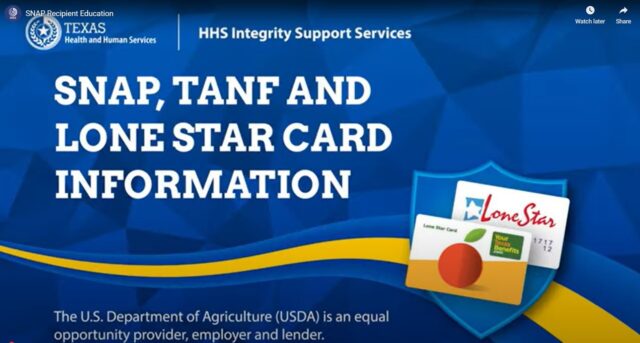The horror stories are all over the media and social platforms, and people are panicking that those receiving taxpayer-funded groceries may soon have to work and pay for their food like everyone else. Not only is President Trump not rushing to restart food stamps, but he is also auditing the program to ensure illegal aliens are no longer receiving them.
SNAP (Supplemental Nutrition Assistance Program), formerly known as food stamps, is the federal government’s largest anti-hunger program, providing monthly food benefits to roughly 42 million low-income Americans through electronic benefit transfer (EBT) cards. As of October 1, 2025, recipients receive maximum monthly SNAP allotments of $298 for one person, $546 for two people, $785 for three people, $994 for four people, $1,183 for five people, $1,421 for six people, $1,571 for seven people, and $1,789 for eight people, with an additional $218 for each additional person.
Now, SNAP is on the verge of running out of funding. Nearly 42 million recipients could lose their benefits as the federal shutdown continues. Funding for October was distributed to states before the shutdown began on October 1, but unless Congress restores appropriations, benefits will stop being issued on November 1.
In a letter dated October 10, 2025, USDA Acting Head of SNAP Ronald Ward warned, “If the current lapse in appropriations continues, there will be insufficient funds to pay full November SNAP benefits for approximately 42 million individuals across the nation.” Several states, including Texas, have already announced that SNAP benefits will be suspended if the shutdown extends past October 27.
The shutdown itself stems from Democrat refusal to fund the government unless President Trump reverses new eligibility restrictions that bar illegal aliens from federal assistance programs. Trump, meanwhile, is using the shutdown to audit and tighten oversight of every major welfare and benefit program, insisting that taxpayer funds must go only to citizens and lawful residents.
On April 24, 2025, USDA Acting Deputy Under Secretary John Walk issued guidance directing all state agencies to enhance identity and immigration verification practices when determining SNAP eligibility. States are now required to obtain more reliable documents to verify identity, prevent fraudulent use of Social Security numbers, and make greater use of the Department of Homeland Security’s Systematic Alien Verification for Entitlements (SAVE) database. USDA Secretary Rollins cited a Government Accountability Office report showing $10.5 billion in improper SNAP payments in fiscal year 2023, roughly 12 percent of total benefits that year, with inadequate verification of applicants’ identity and citizenship identified as a key problem.
In July 2025, the USDA expanded its data collection requirements, ordering states to provide five years of SNAP records, including all household members’ names, dates of birth, Social Security numbers, and addresses. At least 27 states have complied, turning over data that USDA is now cross-checking against DHS records through the SAVE system.
While illegal aliens are already ineligible for SNAP, many had accessed benefits through their U.S.-born children or mixed-status households, an issue the new audit aims to close.
The administration’s reform push extends beyond SNAP. The Administration for Children and Families (ACF) sent directives to state administrators of TANF (Temporary Assistance for Needy Families), reminding them that under Executive Order 14218 and federal law, benefits may not be extended to illegal aliens.
TANF, created under the 1996 Personal Responsibility and Work Opportunity Reconciliation Act, provides cash assistance and support services to low-income families with children but limits eligibility to qualified citizens and lawful immigrants.
ACF Acting Assistant Secretary Andrew Gradison stated, “As a TANF agency, you are responsible for ensuring that sub-recipients and contractors follow all applicable laws related to the use of TANF funds, including prohibitions against providing benefits to illegal aliens.”
The SNAP contingency fund has become one of the most contentious issues in the ongoing funding crisis. The fund, which rolls over in three-year increments, currently holds about $6 billion from appropriations in fiscal years 2024 and 2025. However, it lacks the additional $3 billion that would have been added for fiscal year 2026, as Congress remains deadlocked over that funding bill, the same impasse that triggered the current government shutdown.
The estimated cost of November’s nationwide SNAP benefits is $8 billion, meaning the contingency fund alone cannot cover the full amount but could provide partial payments to help low-income Americans offset food costs.
On Friday, the USDA announced it will not use the contingency fund to pay November SNAP benefits if the shutdown continues beyond October 31. The agency said the fund was created for emergencies such as natural disasters, not for political or budgetary disputes, and therefore cannot be used under current law.
Critics argue this move is intended to increase pressure on Senate Democrats to approve the GOP spending bill that would reopen the government.
Legal and policy experts disagree on whether the USDA’s position is lawful. Sharon Parrott, president of the Center on Budget and Policy Priorities, said the administration is legally obligated to use the contingency funds to pay November benefits and should have prepared weeks in advance to do so. Policy analyst Katie Bergh echoed this point, arguing that SNAP is an entitlement program, meaning the USDA must provide funding and could legally reallocate money as it has done for the WIC nutrition program.
The dispute also has a history of accounting irregularities. On September 19, 2023, the USDA shifted its accounting practice by using fiscal year 2023 funds to pay for October 2023 benefits, which were due in fiscal year 2024.
The Government Accountability Office later ruled that both the previous and revised methods violated the recording statute and that the September 19 change further violated the bona fide needs statute by using funds from one fiscal year to pay obligations from another.
When asked by The Hill why the USDA refuses to use the contingency fund, the department did not address the question directly. Instead, an agency spokesperson reiterated Secretary Rollins’s earlier stance, saying the responsibility lies with Democrats in Congress. “We are approaching an inflection point for Senate Democrats,” the spokesperson said. “They must decide whether to continue holding out for the far-left wing of their party or reopen the government so mothers, babies, and the most vulnerable among us can receive timely WIC and SNAP allotments.”
The irony is that this shutdown exists precisely because Democrats oppose the verification measures and eligibility restrictions implemented under Trump’s One Big Beautiful Bill. Their refusal to accept these reforms triggered the shutdown. Now, that same shutdown is causing federal programs to run out of money while simultaneously giving President Trump the opportunity to remove illegal aliens from taxpayer-funded benefit programs across the board, once and for all. The democrats finally saved the taxpayers some money.









